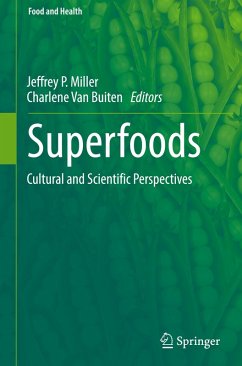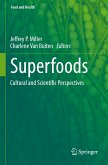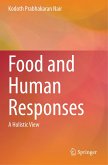Superfoods have come to the forefront of the public imagination due to a combination of presumed health benefits and cultural mystique. Much of the literature on these foods, however, is based upon rostrums and diet plans that accept the health claims of superfoods without subjecting them to rigorous scrutiny.
Superfoods: Cultural and Scientific Perspectives examines these food products from a blended science and cultural viewpoint, presenting a balanced, evidence-based view of each food item. Following a discussion of "superfoods" as a category, the book's chapters examine individual superfoods, including but not limited to: avocados, chocolate, wine, berries, and fish oil.
Presented in a systemic manner, each chapter provides a cultural history of the superfood; a survey of the current state of nutritional research on the food and its health claims; an exploration of related science topics to enhance understanding of the superfood, (i.e., a survey of the botany, biology, or chemistry studies); social issues associated with the superfood, such as sustainability, environmental health concerns, agricultural issues, fair trade and marketing issues; and one to three recipes featuring the superfood. This combination of scientific and cultural perspectives makes Superfoods an invaluable reference for academics, industry professionals, and lay-readers alike.
Superfoods: Cultural and Scientific Perspectives examines these food products from a blended science and cultural viewpoint, presenting a balanced, evidence-based view of each food item. Following a discussion of "superfoods" as a category, the book's chapters examine individual superfoods, including but not limited to: avocados, chocolate, wine, berries, and fish oil.
Presented in a systemic manner, each chapter provides a cultural history of the superfood; a survey of the current state of nutritional research on the food and its health claims; an exploration of related science topics to enhance understanding of the superfood, (i.e., a survey of the botany, biology, or chemistry studies); social issues associated with the superfood, such as sustainability, environmental health concerns, agricultural issues, fair trade and marketing issues; and one to three recipes featuring the superfood. This combination of scientific and cultural perspectives makes Superfoods an invaluable reference for academics, industry professionals, and lay-readers alike.








